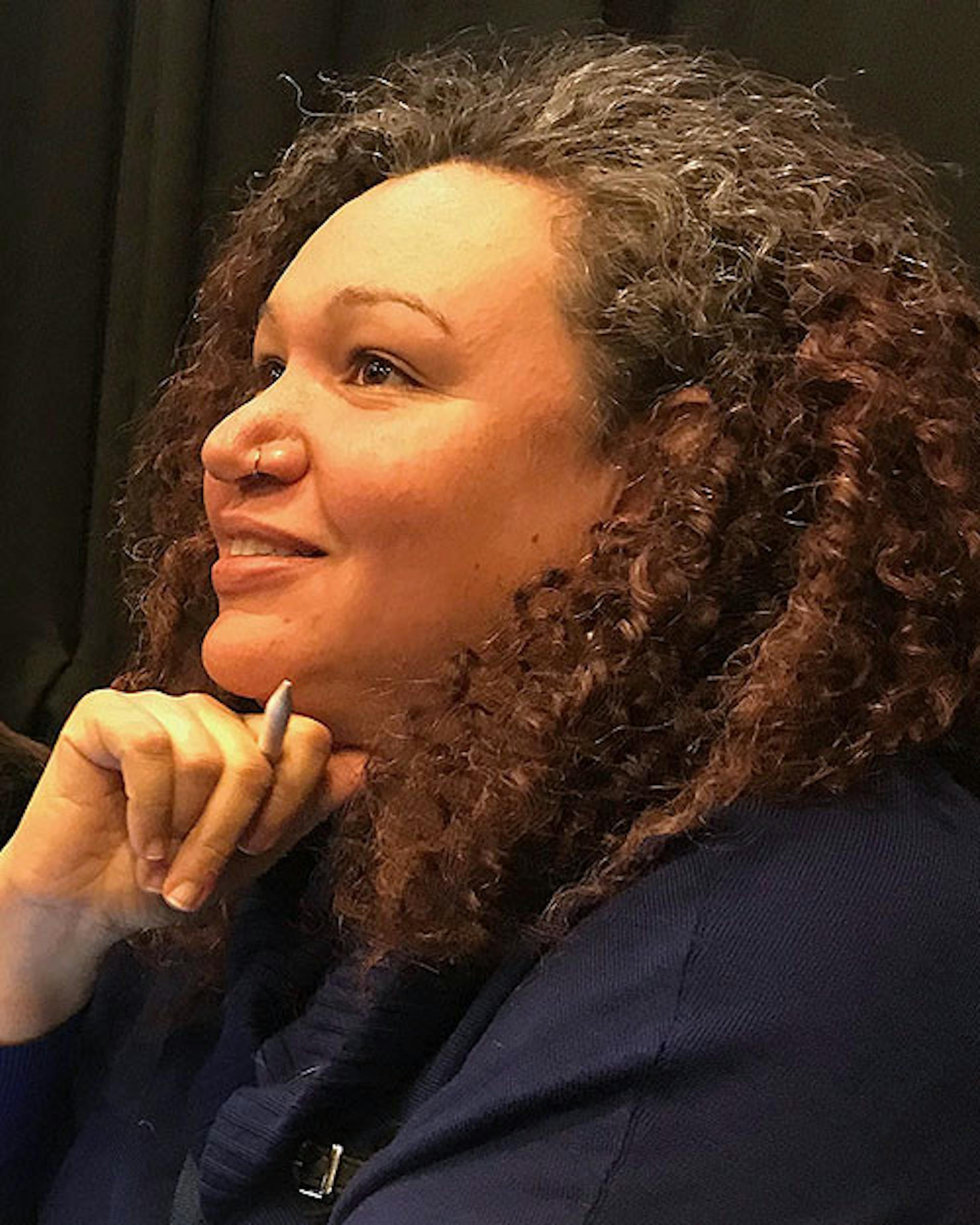Lorgia García Peña, Mellon professor in the Department of Studies in Race, Colonialism and Diaspora at Tufts University, discussed her new book Translating Blackness on Sept. 22. García Peña read excerpts from the book, followed by a panel discussing the importance ofits findings and arguments.
“This book is born from my own experience as a Black Latina immigrant scholar,” García Peña said. “At the heart, the book is concerned with the way in which xenophobia, anti-Blackness, [and] colonialism interact … to produce categories of exclusion, and how people who experienced this intersecting violence find ways to fight back, to belong, to create multiple forms of community that sustain them.”
After starting the discussion with a reading, García Peña reviewed how the book is divided.
“The first [section], on being Black and a citizen, interrogates the relationship between citizenship, blackness and colonialism in the United States from reconstruction … to the Civil Rights Movement,” García Peña said. “The book’s second section, which I call “Black Feminist Contradictions in Latinx Diaspora,” foregrounds gender and sexuality as essential to theorizing Black Latinidad.”
García Peña then explained the crucial intersection between Black Latinidad and Italy.
“Black Latinidad … emerges through the Italian experience as a valuable human and epistemological category for understanding the world today: how global anti-blackness operates and its history in this historical moment, and more importantly, the possibilities, the detours and the hope,” García Peña said. “My hope is that my engagement with [Italy] opens possibilities for more transnational global conversations among the intersections of blackness, colonialism, migration, belonging in new immigrant receiving sites beyond the predominantly studied locations of Latindad.”
After exploring the main points of Translating Blackness, panelists joined the conversation with García Peña. Robin D.G. Kelley, the Gary B. Nash endowed chair in United States History at University of California, Los Angeles, started the panel discussion.
To open the discussion, Kelley noted the important arguments of Arturo Schomburg, a historian whose collection of artifacts on Black history formed the Schomburg Center for Research in Black Culture in New York City.
"Schomburg recognized that … the capaciousness of blackness is a global yet diverse identity, an accumulation of cultures and experiences without a specific homeland claiming the whole globe,” Kelley said.
Kelley then connected Schomburg’s findings with his important work in creating an archive, or a “global collective.” Using this archival work as a backdrop, Kelley noted that Translating Blackness opposes the idea that archives can only be created by officials in the government.
“There are alternative archives. There have always been oppositional movements that keep their records, people’s personal papers, oral histories,” Kelley said. “The purpose was more than preservation: it was mapping a potential future.”
Following Kelley, Dr. SA Smythe, assistant professor of Black Studies and the Archive at the University of Toronto, spoke. Smythe continued to build on the theme of archives, minority populations, and Italy.
“In Italy, Somalia has been swept under the rug, hidden between the lines, erased from books and archives in what I elsewhere call, the footnote condition,” Smythe said. “This book is not about Italy. In a way, Italy is inescapable. In a way, blackness is also similarly inescapable.”
Smythe concluded the panel discussion with a reading of their poem titled “some call it a comeback.”
The first stanza reads, “i just got back & already feel the need to time travel again. \ not the way that some white folks fetishise everything \ its possibilities: the chance to touch everything, \ say they were there, \ spread their imperiousness \ across multiple dimensions.” \
Following the discussion, attendees had the opportunity to ask questions to the panelists. García Peña answered the first question regarding her process with writing.
“The hardest part is always being constant,” García Peña said. “I really treasure and enjoy my time with my thoughts alone in a room with lots of coffee, and being able to put in pages the stuff that typically has been marinating and obsessing me for many, many years.”
Another guest asked a question surrounding García Peña’s experience in the Dominican archive.
“I have a background in journalism and investigative reporting,” García Peña said. “It’s kind of like going in [to the archives and], purposefully trying to like f— with it … finding what has been purposely silenced.”
The final question encompassed García Peña’s difficulties surrounding translations when working in the archives.
“It’s about translation, but it’s also about the inability to translate and the need to translate not linguistically, but contextually,” García Peña said. “What does it mean to be Black in this context, in this moment, and what were the words that people were using during that experience?”






